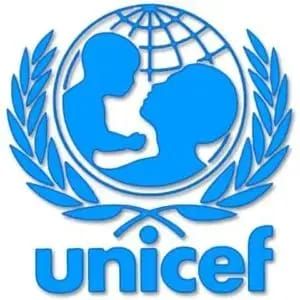The United Nations Children’s Fund (UNICEF) and the Federal Government of Nigeria have urged journalists to uphold the highest ethical standards in child rights reporting, stressing that responsible storytelling is key to protecting the dignity and well-being of the Nigerian child.
This call was made during a two-day training on Ethical Journalism and Child Rights Reporting, held from October 27–28 in Ibadan, Oyo State. The workshop was organised by the Child Rights Information Bureau (CRIB) of the Federal Ministry of Information and National Orientation in collaboration with UNICEF, and drew participants from the South-West, Edo, and Delta States.
In her keynote address, Celine Lafoucriere, UNICEF Chief of the Lagos Field Office, described ethical reporting as “not just a professional standard but a moral imperative” that influences how society views and treats its children.
“At UNICEF, we believe every child has the right to be seen, heard, and protected,” Lafoucriere said. “Ethical reporting means protecting their identities, avoiding sensationalism, and ensuring that their stories are told with dignity and care. When you report responsibly, you not only protect children, you build trust and help communities understand, heal, and grow.”
She added that journalists have the power to shape the future through the narratives they create.
“The way we report on children today shapes the kind of society we build tomorrow. By choosing ethics, you choose protection, dignity, and a better future for every child in Nigeria,” she said.
Representing the Permanent Secretary of the Ministry of Information and National Orientation, Ogbodo Chinasa Nnam, Assistant Director and Head of Advocacy at CRIB, Mr. Temitoye Falayi, emphasised that journalists wield immense influence in shaping public perception and attitudes toward children.
“The media has the power to inform, inspire, and hold institutions accountable. But with that power comes responsibility, the responsibility to uphold integrity and respect for human dignity,” he stated. “Every image, every word, and every frame involving a child can have lasting consequences. We must protect children’s identities and amplify their voices responsibly.”
Nnam explained that the training is part of a broader national effort to strengthen media capacity and promote ethical standards consistent with the Child Rights Act (2003) and international conventions such as the UN Convention on the Rights of the Child (CRC) and the African Charter on the Rights and Welfare of the Child.
Also speaking, Dr. Geoffrey Njoku, UNICEF Communication Consultant, traced the evolution of child rights from the Universal Declaration of Human Rights (1948) to the Convention on the Rights of the Child (1989), which Nigeria ratified in 1991. He stressed that while legal frameworks exist, meaningful change depends on implementation and advocacy, areas where the media plays a decisive role.
“Laws and conventions are important, but without public awareness and consistent reporting, they remain mere documents,” Njoku explained. “That’s why journalists must see themselves as partners in protecting children, not just storytellers but watchdogs who ensure accountability.”
Njoku commended states such as Lagos, which he said had made notable progress in child protection through the establishment of family courts and child monitoring committees. However, he urged the media to continue holding authorities accountable for their commitments under the CRC.
Participants agreed that ethical reporting on children goes beyond avoiding harm, it also includes highlighting success stories, promoting inclusivity, and providing children with platforms to share their experiences and aspirations.
A Professor of Broadcasting Development and Political Communication and Head of Department, Film and Multi-Media Studies, University of Uyo, Prof. Charles Obot, called on media organisations to institutionalise ethics.
“Every media house should establish clear guidelines for child-sensitive reporting, just as citizens are guided by the constitution,” he said.
Experts at the training emphasised that journalists must balance the public’s right to know with the child’s right to privacy, urging media organisations to prioritise regular training for reporters covering child-related issues.
The session concluded with a renewed call for collaboration among government agencies, the media, and civil society to foster a culture of ethical, child-focused journalism across Nigeria.















